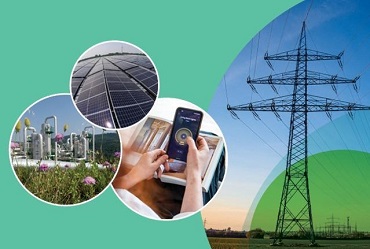European Parliament votes with large majority in favour of REPowerEU
“By a large majority on Tuesday, the European Parliament voted in favour of the agreement on REPowerEU which includes a first time intervention in the EU’s emissions trading system that will mean that prices will not rise too sharply in the short term,” announced Dr. Peter Liese, environmental policy spokesman of the largest group in the European Parliament (EPP, Christian Democrats). Last spring, the European Commission had presented a proposal called REPowerEU, which aims at mobilising financial resources so that the Member States become less dependent on Russian gas and oil. For example, installations for renewable energies, electricity grids, energy efficiency measures but also LNG infrastructure are to be financed. Existing financial resources will be used for this purpose, topped up by 20 billion € of additional funds from EU emissions trading. 8 billion EUR will be made available from the ETS through so-called frontloading, an earlier auctioning of allowances. In addition, 12 billion EUR will be re-allocated from the European Innovation Fund. The withdrawal of the required amount of allowances will be compensated by the transfer of 27 million CO2 allowances from the market stability reserve (between 2.2 and 2.7 billion EUR at a CO2 reserve of 80 or 100 EUR).
"All of these three measures were highly controversial, among other things, because they will cause the price of emission allowances to not increase over the next few years. However, in my view, this is an intentional effect. The price is now already at almost 100 EUR and no company can drastically reduce its emissions within a few weeks. Especially in the current crisis, when skilled craftsmen and materials are in short supply, private individuals also need time to adapt. That's why I think the price-dampening effect of REPowerEU is not only acceptable, but also desirable. At the same time, we are creating additional money to advance the energy transition more quickly. The lion's share must obviously be invested into the uptake of renewables and energy efficiency. We paid attention to this during the negotiations. That's why I believe the compromise is the right response to the crisis and the long-term challenges we face when trying to achieve our climate targets. In the context of emissions trading, we have even increased the target for 2030. The agreement also takes account of the fact that we now have to burn more coal in the short term in order to become independent from Russian gas, but that we will have to increase our efforts again by the end of the decade. By then, we will be in a position to achieve this because the excuse that there is a shortage of materials and skilled workers will no longer hold true in a few years' time. If you have not invested by then, it's your own fault," concludes the environmental politician and Rapporteur of the opinion-giving ENVI Committee with exclusive competences on the funding provisions from ETS.


